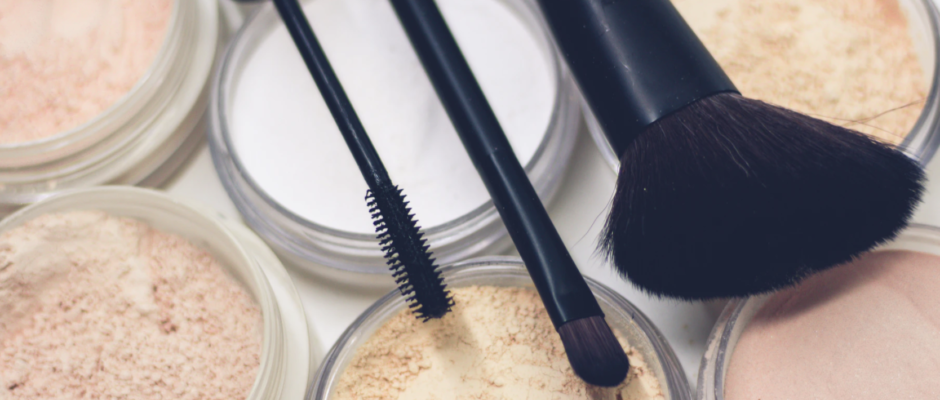What’s the Deal with Estrogen?
On Thursday evening I attended a lecture by renowned PCOS gynecologist Dr. Felice Gersh.
I knew I liked her when she opened her lecture by telling us she was wearing a wig just for fun. She likes princess hair. Who can blame her?
Then she proceeded to blow my mind by teaching us about estrogen’s role in PCOS.
PCOS is the acronym for Polycystic Ovarian Syndrome. It is characterized by cysts on the ovaries (often called the “string of pearls” for the way the ovarian cysts look on an ultrasound), high androgens like DHEA and testosterone, and dysregulated blood sugar.

photo via unsplash byTiffany Anthony
PCOS can be devastating for many women. Symptomatic hallmarks involve anovulation and thus infertility, hirsutism (facial hair), inability to lose weight, bowel problems, deep and painful acne, dysregulated cortisol, insomnia, and mood disorders. Even with the high testosterone, PCOS women tend to have low libido.
Women with PCOS will often have a mother who had PCOS. Oftentimes, this will be undiagnosed. Women just go through life hairy, fluffy, and exhausted and have no idea why.
Unacceptable.
Here are some other things that women with PCOS have to deal with:
autoimmune thyroid, skin tags, darkened skin, acanthrosis nigricans (discoloration of skin), leaky gut, arthritis, tendonitis, depression, anxiety, stress, vaginal infections, altered skin and intestinal microbiome, cancer, and sleep dysfunction.
In functional nutrition, we are trained to look for the root cause.
So, why?
Why does a woman have to deal with all of these symptoms? Each symptom is connected and has a root cause. Slapping a pill on a symptom like acne (Accutane) or dysregulated blood sugar (Metformin), or vaginal infections (Z-Pack), or anxiety (Xanax), or sleep dysfunction (benzodiazepines) will simply overrun the poor liver and lead to more symptoms. Isn’t it better to treat the root instead of the fruit?
To get to the root we have to know the cause.
The cause of PCOS, and many other chronic conditions, involve…hormones!
More specifically here: hormone receptor problems.
With PCOS, there is dysregulated blood sugar and therefore the pituitary gland is off. Levels of FSH and LH are consequently off.
Follicle Stimulating Hormone (FSH) is a pituitary hormone and stimulates the growth of the, well, follicles, which leads to ovulation. It also increases natural estrogen production- a good thing. In PCOS, FSH is low. That is bad.
Luteinizing Hormone (LH) is also a pituitary hormone. It stimulates the ovaries to produce estrogen too. Good thing. But in PCOS, it is too high.
So if we look upstream, altered FSH and LH are not ovarian problems, they are pituitary hormones.
Interestingly enough, most chronic disease can be traced back to a pituitary problem. The pituitary gland has to process stress. When stress is so prevalent and so relentless, the poor pituitary is overloaded. It will shut down metabolic processes in order to protect the body.
Hypothyroidism? Pituitary problem?
PCOS? Pituitary problem.
When your doctor measures your TSH and decides your thyroid function is low, she is actually measuring a pituitary hormone- TSH is released by the pituitary.
Same with PCOS. Follicle Stimulating Hormone is a pituitary hormone. If the pituitary is overloaded, the body innately knows that pregnancy is not a wise option. So it drops its production of FSH so your body does not ovulate. God knows that a healthy baby cannot thrive in a stressful environment.
What else can cause PCOS? Exposure to endocrine disruptors- in utero!- can plant the seeds for future PCOS. Stay away from plastics, BPA, phthalates, and the like.

photo via unsplash by Raphael Lovaski
Dr. Gersh turned the PCOS epidemic on its head by explaining that PCOS has been around forever, but it has only recently been turned into a disease.
Consider: if a cavewoman had high testosterone, she was better able to lift and run and protect herself and her family. But if her blood sugar and pituitary were off, her body knew that it was not the right time to have a child. And since 50% of women with PCOS have a mother who has PCOS (diagnosed or undiagnosed), the gene for PCOS would slowly become obsolete because the women with PCOS were anovulatory and could not have children. Good for the human race.
Nearly 40% percent of female Olympians have PCOS. It obviously can equate into a physical advantage for women.
Testosterone has to go through a process called aromatization to convert to estrogen. Women with PCOS have reduced capability for aromatization. Therefore, they have an excess of testosterone and a shortage of estrogen in the body. This is an easy blood lab to execute.
Estrogen gets a bad rap. In functional nutrition, it is very popular to offer “estrogen dominance” as a solution for many symptoms like PMS and acne and menstrual problems. Of course, too much unopposed estrogen can lead to estrogen-dominant cancers of the ovaries, breasts, and uterus.
But “estrogen dominant” must take into account that the body is also “progesterone deficient”. Rarely do I see labs that have high levels of both estrogen and progesterone. Rather, estrogen is high and progesterone is extremely low. Often, intelligently supplementing with progesterone will help normalize levels—-
if——-
——stress reduction is also part of the healing program.
If you don’t address the pituitary problem (stress), you will never address the root cause of the issue.
Make sense?
Estrogen is already low, and the stress response is off. In women with PCOS, cell receptor sites are also blunted. This means estrogen is less effective. It also means insulin is less effective.
Low estrogen + high testosterone + insulin resistance= hairy, fluffy, and anxious.
Women who are in menopause have many of these same symptoms.
So, says Dr. Gersh, PCOS and estrogen deficiency have a similar presentation.
That’s interesting. Who else has estrogen deficiency? Women in menopause.
Hairy, fluffy, and anxious.
So can you simply add estrogen? Perhaps. The hormonal symphony is more complicated than that in most cases. Carefully track blood serum concentrations of estrogen, testosterone, progesterone, DHEA, and pregnenolone.
What about the problems with estrogen replacement therapy?
Increase in cancer risk? We scratched the surface as to why this may not be the problem it appears to be.
Blood clotting problems? Well, says Dr. Gersh, estrogen does not cause blood clots. It actually reduces blood clots. But women with PCOS (or in menopause) are hyper-coagulable, meaning their blood clots easily. Remedy with a proper diet and Vitamin D + K2.
Now remember, there is an increase of probability of blood clots in women with PCOS. If you and your doctor choose to do estrogen replacement therapy, proceed with caution. Work on stress relief, proper diet, and normalizing micronutrient (specifically D and K) levels first.
In PCOS, even with high testosterone, women still suffer from low libido. One reason for this is that estrogen makes you…stretchy. Think birthing a baby. Without proper estrogen, sex simply hurts. The vagina is filled with estrogen receptors. In pregnancy, the uterus is a veritable estrone factory, which is a less potent but very abundant form of estrogen. You need plenty of estone and estradiol to be able to have a healthy pregnancy.
Is this another reason women with PCOS have trouble getting pregnant? My thought is yes.
In a nutshell, PCOS is driven by inflammation, the annoyingly catch-all state that causes disease.
It’s annoying because there is no medication for inflammation. You have to work hard at reducing it on your own.
How does one do this? I prefer to use the FDN DRESS protocol:
Diet: whole, nourishing, plentiful meats + vegetables + fruits + nuts + roots
Rest: in bed before 10, sleeping until 6, naps as needed.
Exercise: HIIT 15 minutes/ 3x week only; 10,000 steps + a day (moderate pace)
Stress Relief: non-negotiable: not too much exercise; massage; conversation; deep breathing; sauna; grounding/ earthing
Supplementation: blood sugar control: berberine 500 mg/day; anxiety: inositol: 1 tsp TID; anovulation: vitex as directed.
Stress relief is key. I am not kidding. Look upstream, find the faulty pituitary, and address the root cause: stress.
Say no.
Stop being a people pleaser.
Stay home on the weekends.
Quit travel sports.
Take naps.
Walk in nature every day.
Sleep on a grounding mat.
In short, be radical with your nourishment. Radical, I say, because it is nearly impossible to do this. Everyone says I don’t have time or I can’t do that or that won’t work.
But I am telling you, there is no healing without rest. You must do it. No one can do it for you.
I am hosting an event on Tuesday, November 20. It is called Radical Nourishment and my co-hosts will be Kristina Black and Christian Osorio.
We will be showing you how to build stress relief into your hectic and busy lives. We are all moms of multiples. We homeschool and have businesses. We get it. We also know how important it is for our pituitary glands to receive a break during the day, and how this makes us better wives, mothers, businesswomen, and friends.
Will you please grab a girlfriend and join us for a delicious catered lunch, an al fresco yoga class, individualized massage therapy, and excellent teaching on stress relief? We want you to leave feeling pampered and equipped to face life on a day to day basis.
You can sign up here.
Stress relief is key, ladies.
To your balanced health,
Jennifer
PS- My Keto Hormone Balance program drops on November 5. Sign up here if you are interested. It is going to be fun! I promise.






